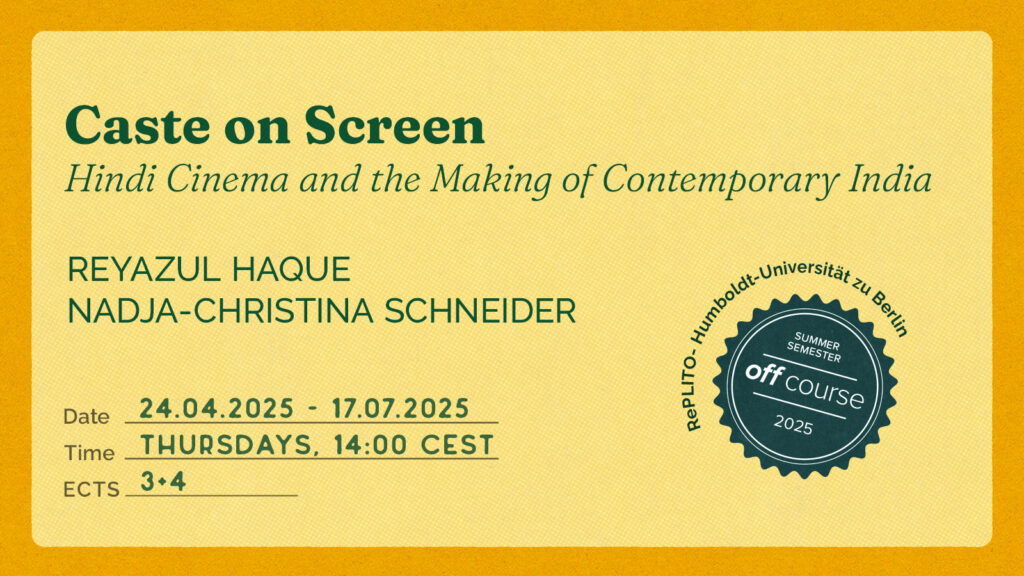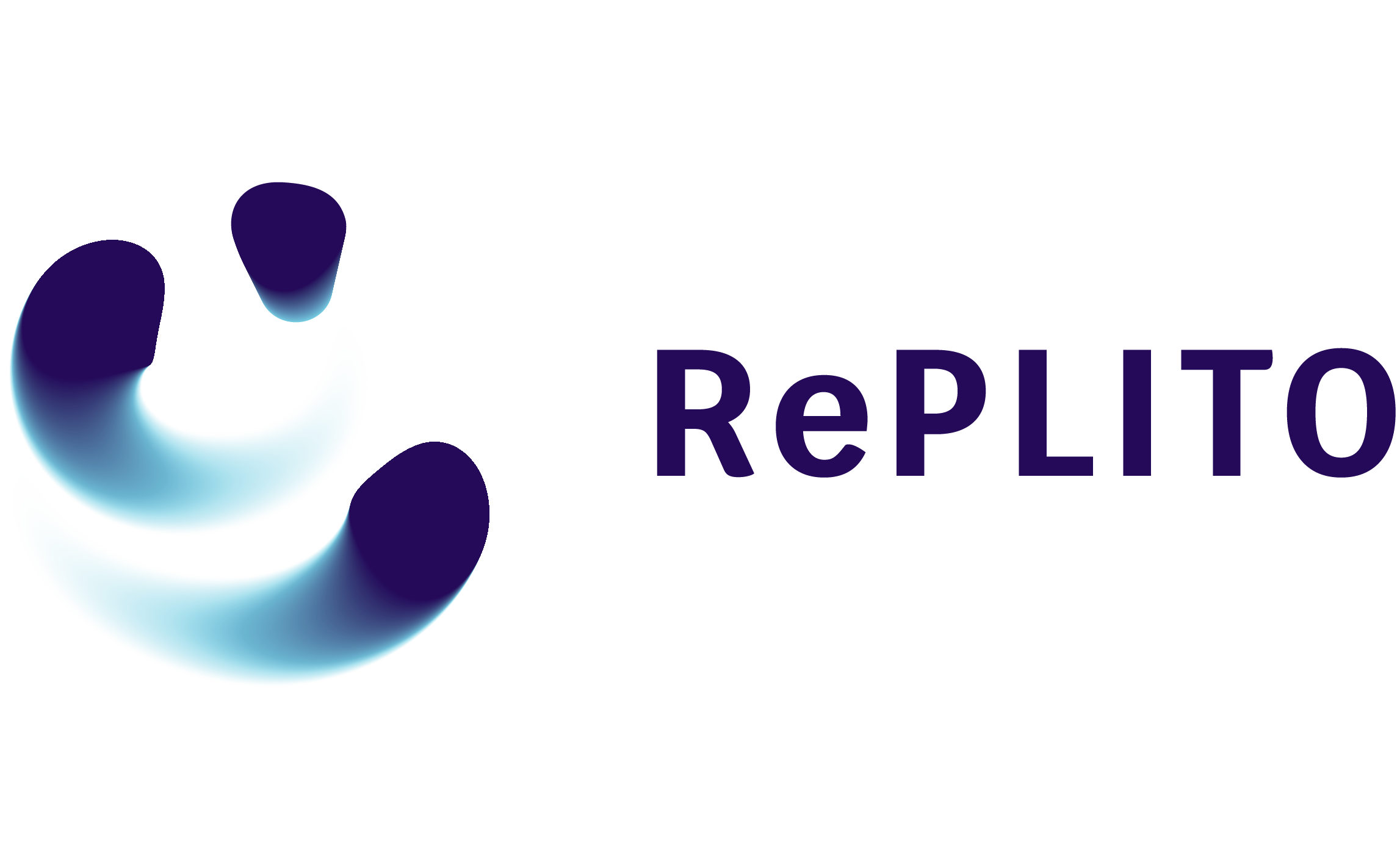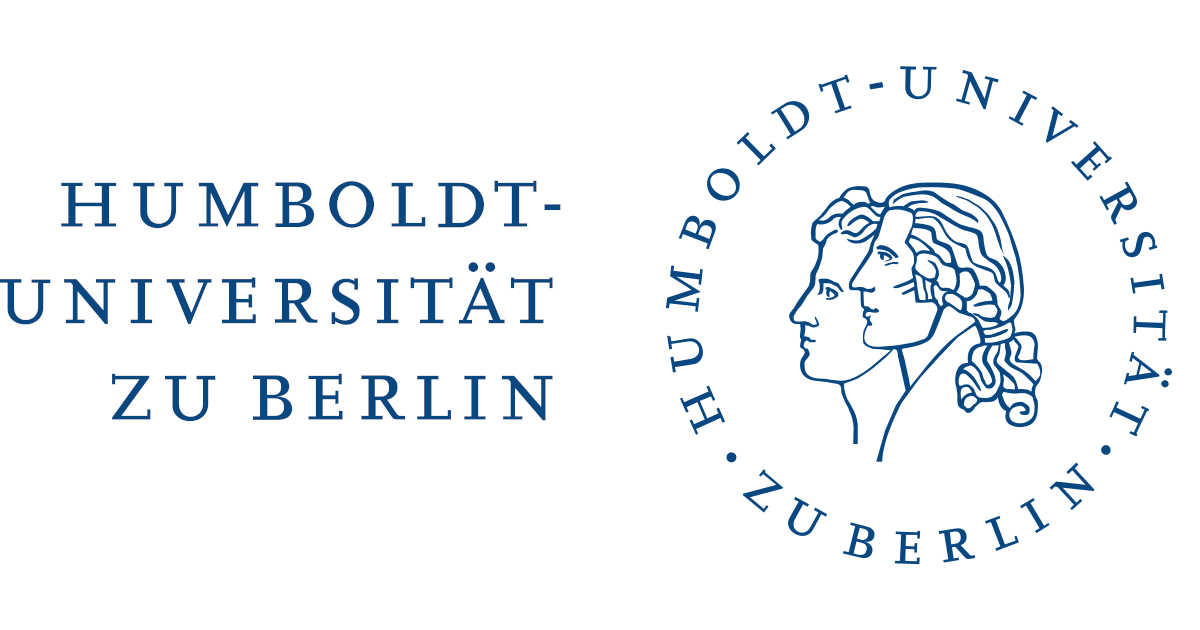Caste on Screen
Hindi Cinema and the Making of Contemporary India
Overview
This course explores the complex role of caste in shaping contemporary societies in South Asia, particularly in India, where caste-based dynamics contribute to violence against Dalits (literally “oppressed”, the social strata at the bottom of caste system), gender subjugation, communal tensions, nationalism, authoritarianism, and minority persecution. By examining the presence and absence of caste in Hindi films—through both feature films and documentaries—this course examines how cinema influences and reflects these social structures and their consequences.
The curriculum consists of three modules: (i) an exploration of caste’s history and its persistence; (ii) an analysis of cinema and visual culture as they relate to caste representation; and (iii) a study of anti-caste movements and critical cinematic efforts that challenge caste hierarchies. Each class will feature selected film clips to illustrate how caste-based themes are woven into Hindi films.
This course is designed to provide both introductory insights for new students and deeper understanding for those with advanced knowledge of the subjects.
Learning Outcomes
To provide a general understanding about:
- Analysing Hindi Cinema in the context of Indian Caste system
- Understanding the mechanism of Caste System
- Caste and its relationship to gender, and religious minorities
Upon the successful completion of the course students will be able to:
- Understand the ways caste is presented in or omitted from Hindi Cinema
- Understand how Hindi cinema functions as an apparatus of caste and gender, and how it resists
- Learn better about the new trends in Hindi cinema cultures that address the realities of castes
- See what happens when the authoritarian regime, caste society, patriarchy, majoritarianism, and cinema come together.
Course Outline
Week 1 – April 24th, 2025
Caste on Screen: A History and Methods
- Introduction to caste system.
- The brief outline of the historical evolution of the caste.
- Necessity and importance to understand caste to understand the Indian society and culture.
- How caste shapes contemporary politics and ideology?
Week 2 – May 22nd, 2025
Screening the Caste: Approaches and Methods
- Cinema Studies’ approaches to understand different gazes
- Interrogating the cinema as an apparatus
Week 3 – June 5th, 2025
Untouchability and Beyond
- Untouchability and its role as a marker of the caste
- Anxieties around senses: touching, seeing, smelling, and the body
Week 4 – June 12th, 2025
Ambedkar: A Present Absence
- The historical role of BR Ambedkar
- How do Hindi films depict Ambedkar?
- Ambedkar as a framed portrait or a framework of emancipation?
Week 5 – June 19th, 2025
Gendered Anxieties of a Caste Society
- Hindi films and their stances on love, relationships, and family
- Feminist perspectives and caste/anti-caste movements depicted in Hindi cinema.
Week 6 – June 26th, 2025
Caste and the Other
- Caste system, and its relations with social and religious minorities
- Cinema’s approach to mobilise these faultlines.
Week 7 – July 3rd, 2025
De-brahminising Spectatorship
- Questioning and analysing the role of spectators
- What new ways of seeing are emerging out of Hindi cinema practices?
Week 8 – July 10th, 2025
Film screening, Summing up and Conclusions
- Resisting the caste through cinema
- How the new ways of looking are critical to imagining a new society
- A self-reflexive perspective and cinema’s role
Instructors
Reyazul Haque
Reyazul Haque studied at the School of Arts and Aesthetics for his Masters and M.Phil., where his academic interests centred around Ambedkerite and Brechtian methods of transformations. A bachelor in Spanish, and a theatre practitioner Haque has also worked as a journalist and editor at prestigious media and publishing houses in India. He has been associated with the Leibniz-Zentrum Moderner Orient (ZMO) as an academic fellow, and is currently pursuing his doctoral thesis on India’s depiction in DDR newsreels. He regularly translates Arundhati Roy and Anand Teltumbde, among others.
Certification
This course is hosted by Humboldt-University Berlin and certified with 3 ECTS for seminar, additional 4 ECTS for exam upon successful completion.
Please check the course requirements from the course syllabus and inform your instructor(s) about your request to receive a certificate for this course.
You will find the full syllabus on Moodle course page.
At the end of the semester, the instructors will inform the learning designer about your request and grade. The certificate will be prepared with the university secretariat and it may take up to 8 weeks.
Registration
Our courses are held on a digital learning platform, Moodle. Before you create your account on Moodle, we have some notes for your and others’ digital security.
- When you register, you can use a nickname. Nicknames with offensive, racist or sexist undertones will not be accepted.
- Communication outside of the platform is not private. It is a solidarity action with people who would like to stay anonymous for different reasons. Please use our secure platform to communicate with others and respect their choices of communication channels.
- We aim to create an inclusive learning environment with our participants and educate ourselves in a more inclusive language. Be eager and tolerant to learn from each other and challenge any discriminating language. You can have a look at it here.
Creating a new account and registering to a course on Moodle
1. The link will take you to the Off University Moodle homepage.
2. Click the “Log in” button on the top right side of the page.
If you have an account on Off University Moodle, please login and continue from step 7 below.
3. Scroll down to see “Create new account” and click the button.
4. Please fill in the fields marked as *required.
You can use false information to protect your identity and increase your safety. You can enter a nickname, a false email address that resembles the format, such as name@example.org etc. Please note down your user name and password in a safe place.
5. Once you created your account, please wait until the next working day to continue.
Your account needs activation which will be done by Off University. We will need some time to activate your account. This can take up to 24 hours on weekdays and longer on weekends.
6. Please login to check whether your account it active. Once you can login, you will find the available courses on the home page of Moodle and will be able to register by clicking the course title.
7. You can now discover the course page. The first item on the page, General, contains the syllabus and the announcements. Please follow these announcements to stay up to date about your course.

Course Details
Duration
24.04.2025 – 17.07.2025
Time
Thursdays, 14:00 CET
Credits
3 + 4 ECTS
Language
English
Host Institution
Humboldt-University Berlin, Institute for Asian and African Studies
Registration:
Supported by:



